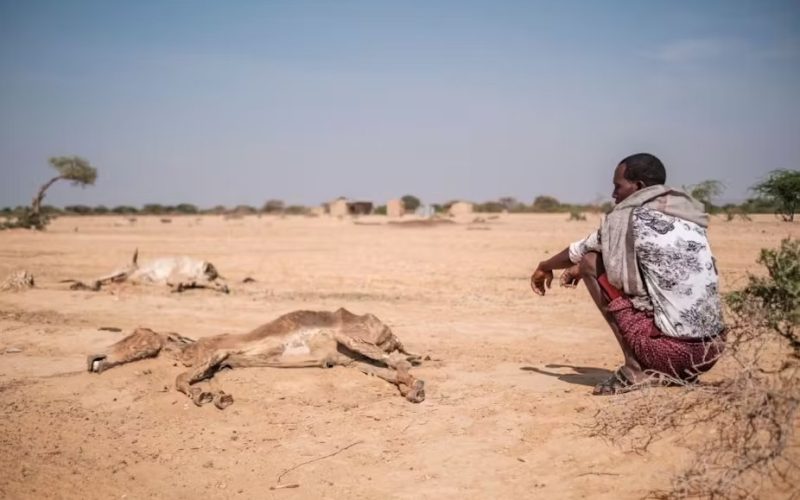Recent projections suggest that over 250,000 lives could be lost annually in Africa due to the escalating effects of climate change.
The urgency of this crisis was underscored at a recent forum convened in Addis Ababa by the Pan-African Climate Justice Alliance, in collaboration with esteemed organizations such as the World Health Organization (WHO), the African Health and Research Foundation (AMREF), and the Ministry of Health Ethiopia.
The forum brought together a diverse array of stakeholders, including climate change experts, health professionals, policymakers, and institutional leaders, to address the multifaceted challenges posed by climate change.
Dr. Mithika Mwenda, the Executive Director of the Pan African Climate Change Justice Alliance (PACJA), emphasized the profound impact of climate change on public health.
He elucidated that the ripple effects of climate change encompass a spectrum of health hazards, spanning from air and water pollution to food insecurity, exacerbating existing health crises across the continent.
Dr. Mwenda stressed that urgent action is imperative to avert the grim projection of 250,000 annual deaths, as highlighted in a sobering report by the World Health Organization.
Echoing Dr. Mwenda’s sentiments, Desta Lakew, the Group Partnership and External Affairs Director of the Africa Health and Research Foundation (AMREF), elucidated the complex challenges confronting Africa as a result of climate change-induced damages.
Lakew emphasized the intrinsic relationship between African communities and their natural environment, advocating for research methodologies grounded in indigenous knowledge systems and community engagement to drive effective solutions.
However, Lakew lamented that past climate change studies and interventions have often fallen short in addressing Africa’s unique challenges.
Despite efforts to transplant findings from other regions, these endeavors have failed to yield meaningful outcomes tailored to the African context.
Waltaji Terfa, a distinguished expert on health and environmental protection from the World Health Organization, underscored climate change as a primary driver of the escalating health crisis.
Terfa highlighted the disproportionate impact of climate change on vulnerable populations, particularly women, girls, and minority communities, necessitating targeted interventions to mitigate their susceptibility and enhance resilience.
The dire consequences of climate change were starkly illustrated by a report from Save the Children, revealing that in 2023 alone, 12,000 lives were lost due to climate-induced disasters such as floods, wildfires, and landslides.
Alarmingly, the frequency and severity of such disasters are on the rise, with 240 climate-related incidents recorded in the same year, signaling an ominous trend.
Looking ahead, a UN report warns of a looming humanitarian crisis, with an estimated 1.2 billion people at risk of displacement by 2050 if climate change remains unchecked.
This projection underscores the urgent need for concerted global action to curb greenhouse gas emissions, mitigate the impacts of climate change, and safeguard the most vulnerable communities from its devastating consequences.
